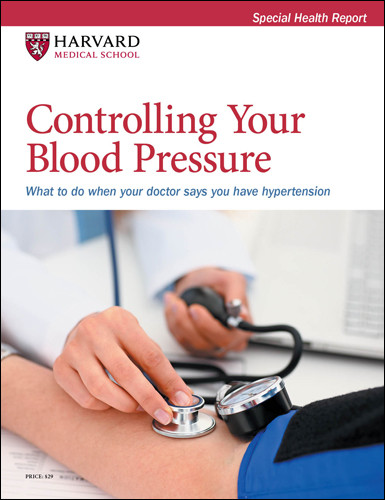Uncontrolled high blood pressure or diabetes tied to severe COVID-19 outcomes
News briefs
- Reviewed by Anthony L. Komaroff, MD, Editor in Chief, Harvard Health Letter; Editorial Advisory Board Member, Harvard Health Publishing

Here's another incentive for people with high blood pressure or diabetes to lower their numbers: a study of almost 1.5 million people in the United States suggests that having uncontrolled high blood pressure or diabetes prior to getting COVID-19 sharply increases the risk for COVID complications. Researchers evaluated participants' health both before and during the time they developed COVID (from March 2020 to February 2022). Compared with people whose blood pressure was the best controlled before getting infected, those with the worst-controlled blood pressure had about 30% greater odds of needing hospitalization or critical care and 32% greater odds of being on a ventilator. Among participants with diabetes, those whose blood sugar was most poorly controlled before getting COVID had about 61% greater odds of being hospitalized, 42% greater odds of needing critical care, 12% greater odds of being on a ventilator, and 18% greater odds of dying, compared with those whose blood sugar was the best controlled. The study, published online Oct. 18, 2023, by the Journal of the American Heart Association, was observational and doesn't prove that controlling diabetes and high blood pressure protects against COVID complications. But we know for sure that controlling these conditions also reduces the risks of heart or kidney disease and premature death—and that's reason enough.
Image: © Halfpoint Images/Getty Images
About the Author

Heidi Godman, Executive Editor, Harvard Health Letter
About the Reviewer

Anthony L. Komaroff, MD, Editor in Chief, Harvard Health Letter; Editorial Advisory Board Member, Harvard Health Publishing
Disclaimer:
As a service to our readers, Harvard Health Publishing provides access to our library of archived content. Please note the date of last review or update on all articles.
No content on this site, regardless of date, should ever be used as a substitute for direct medical advice from your doctor or other qualified clinician.
















